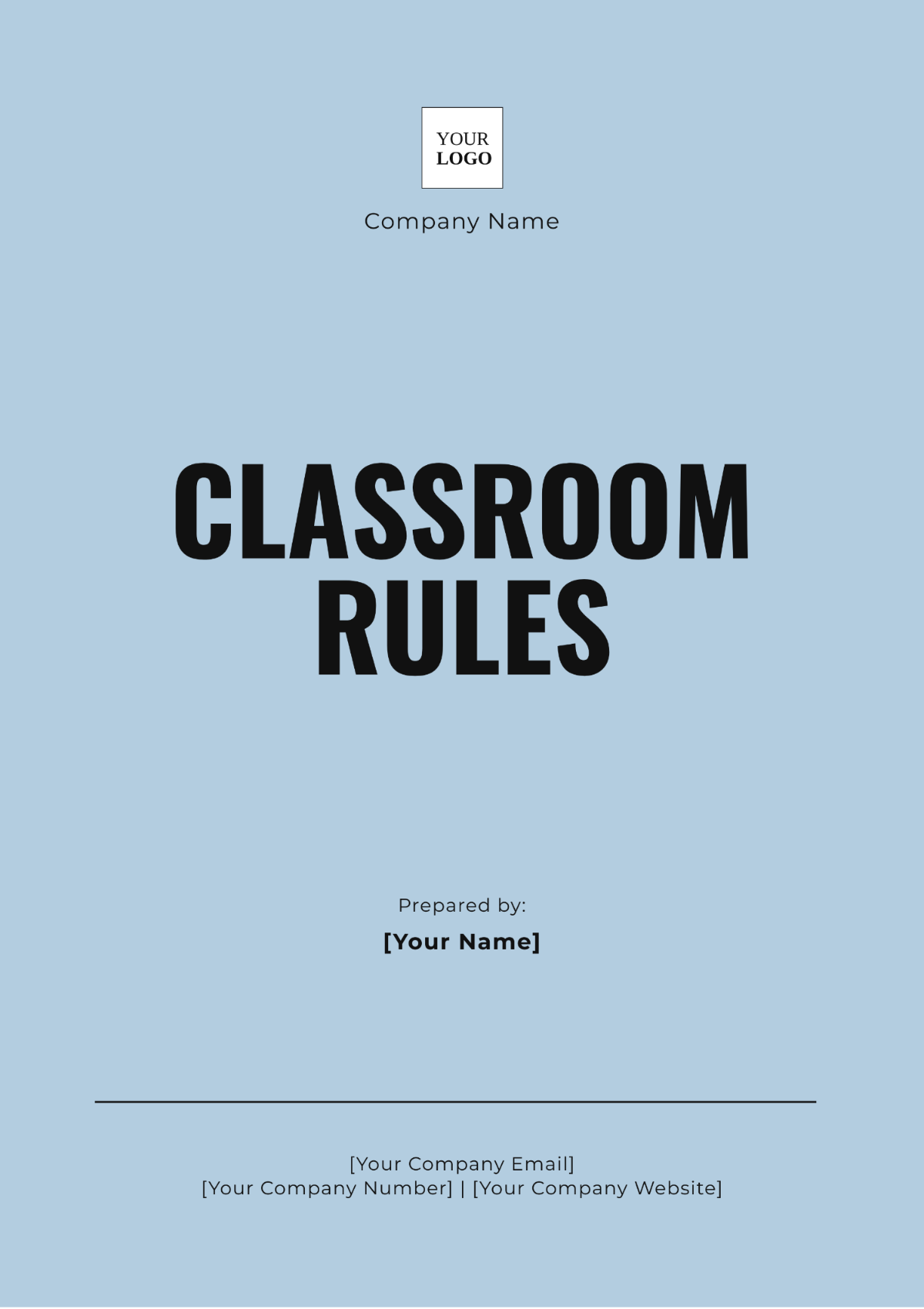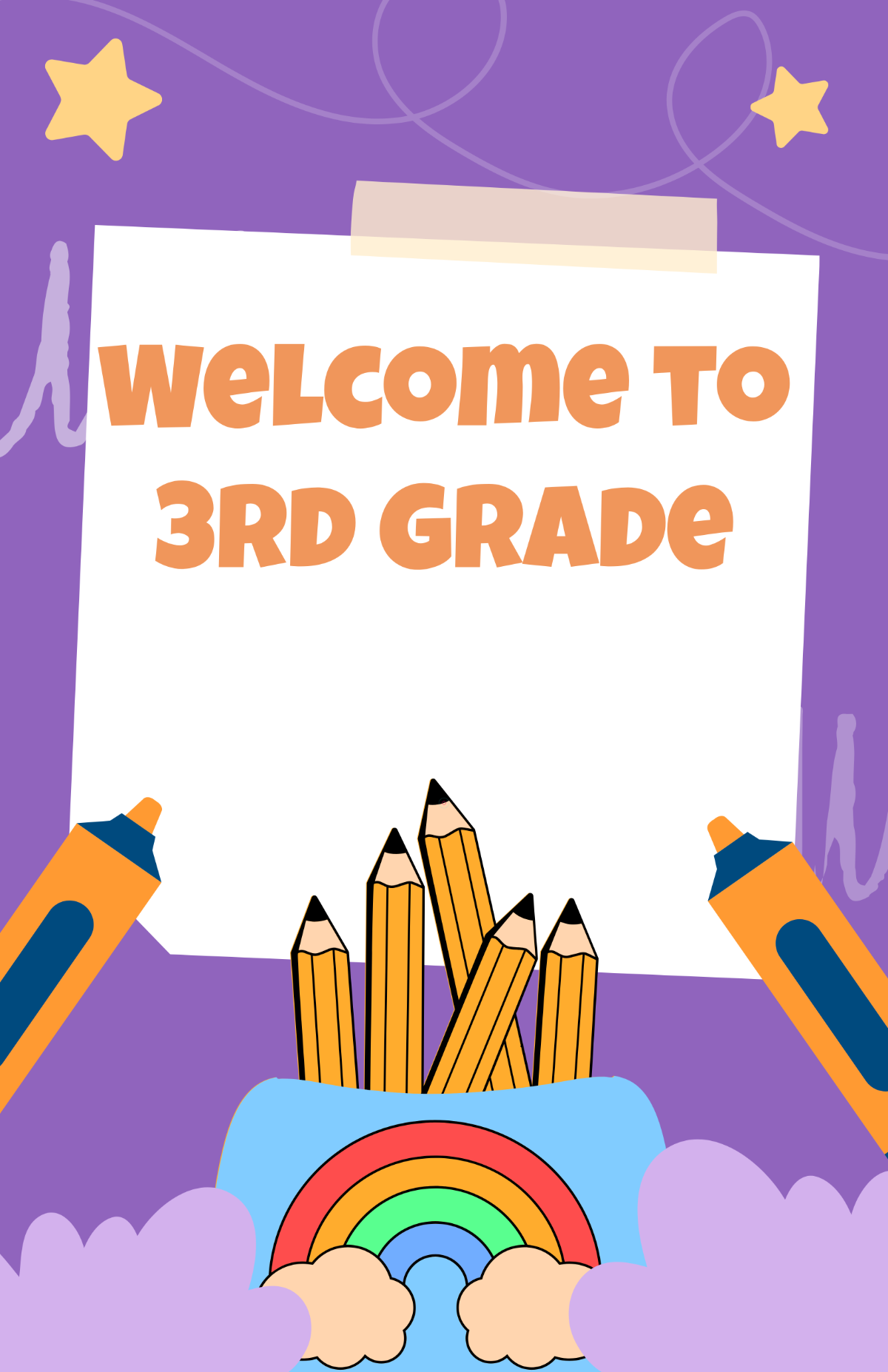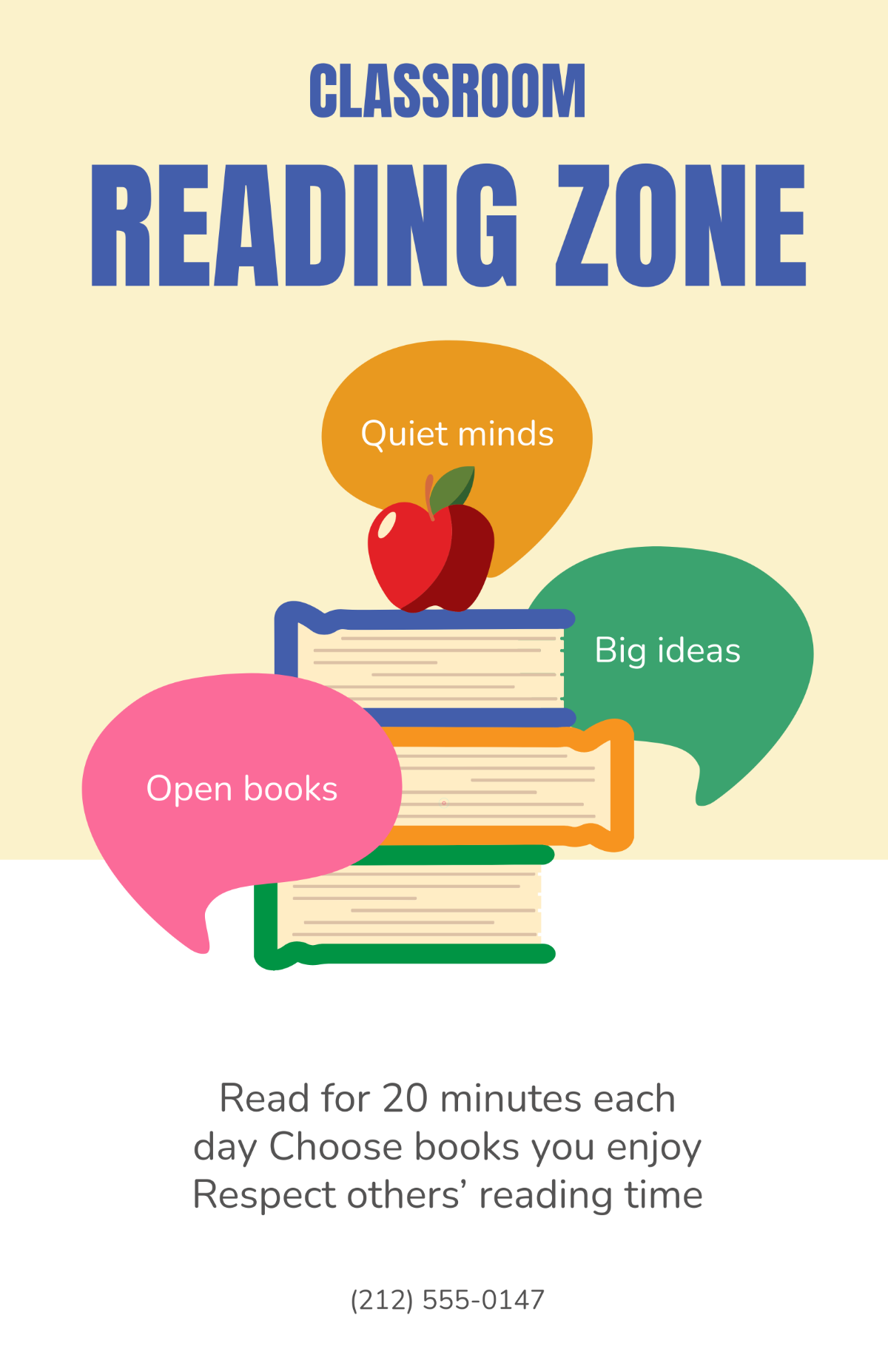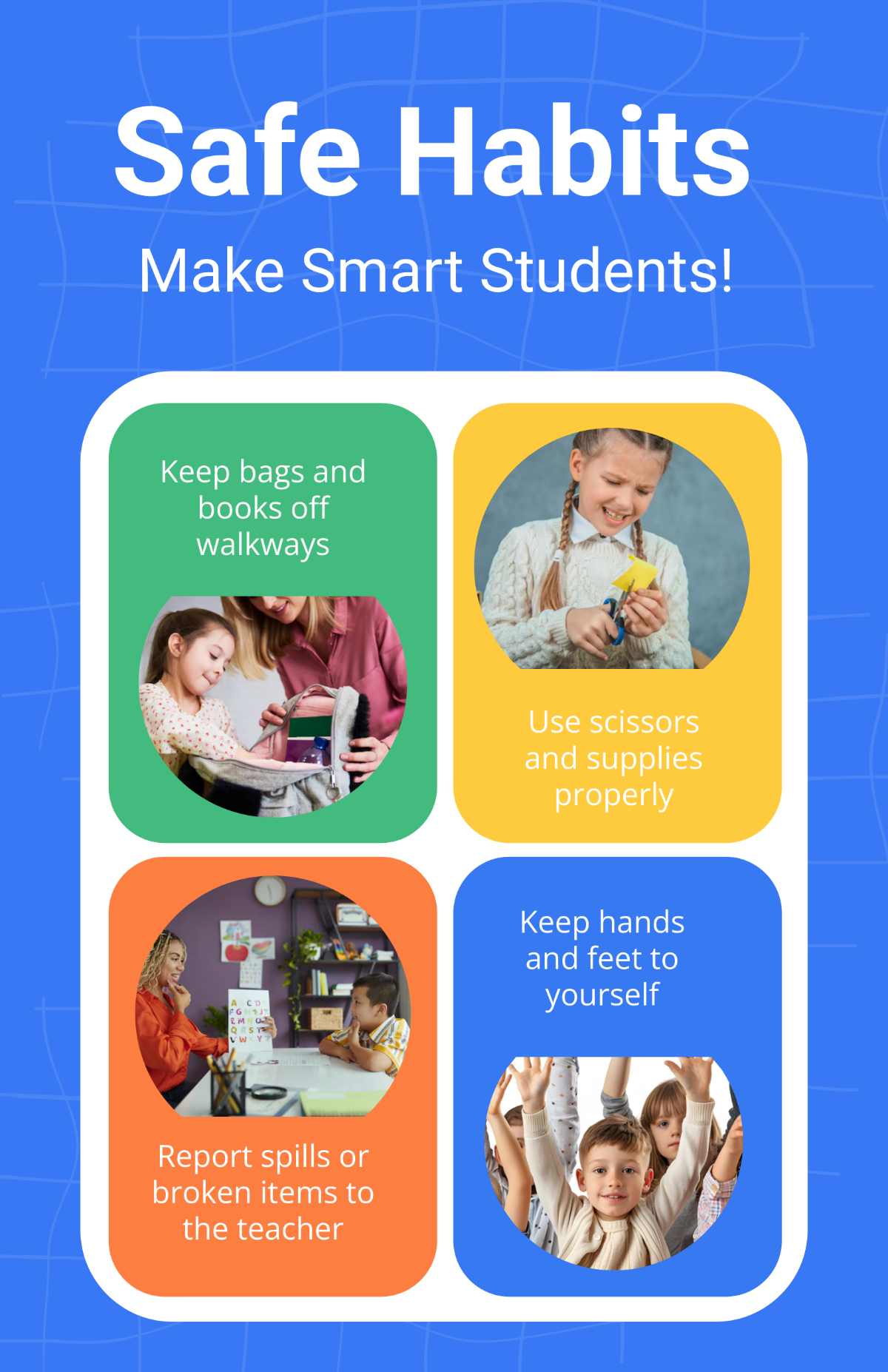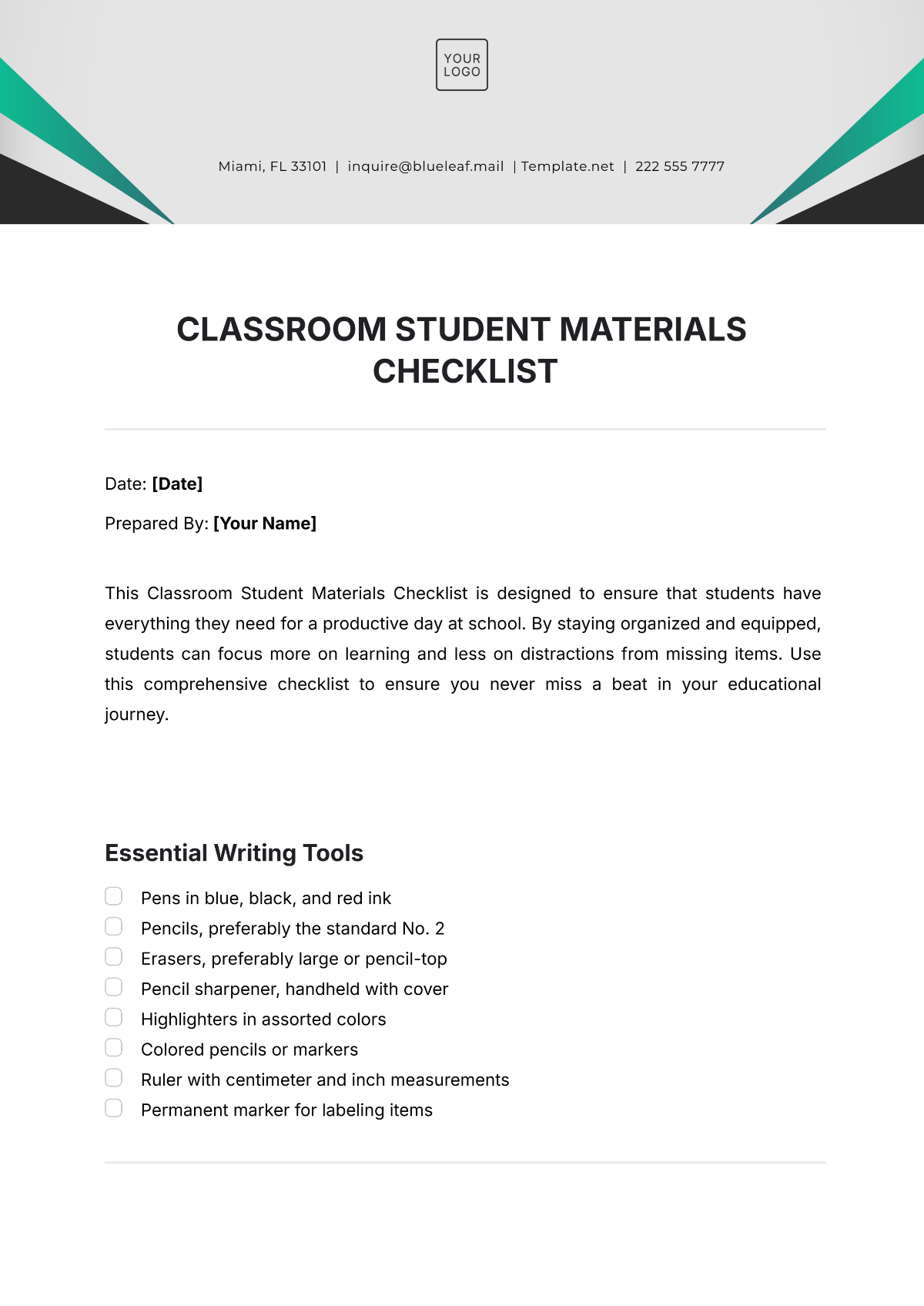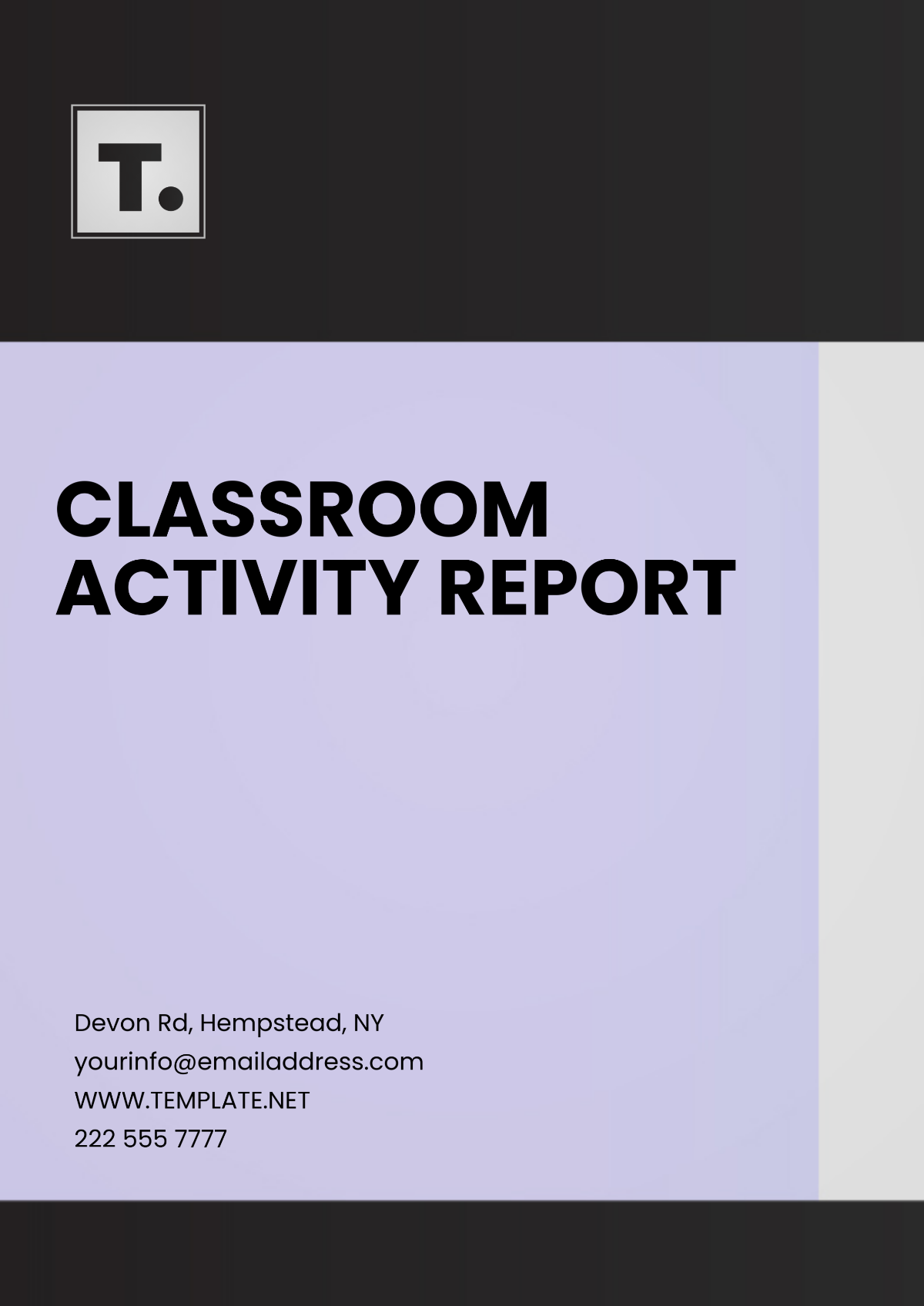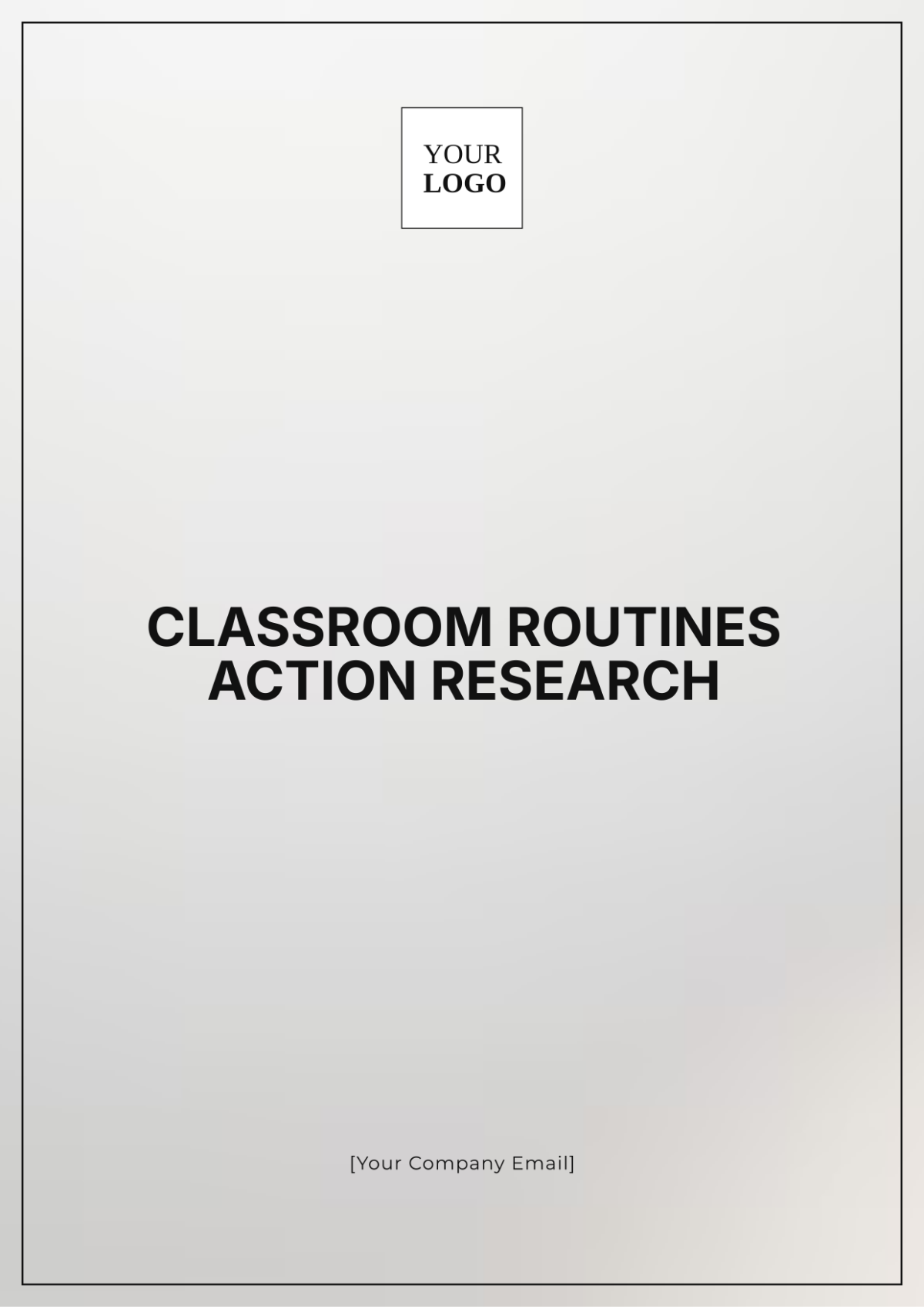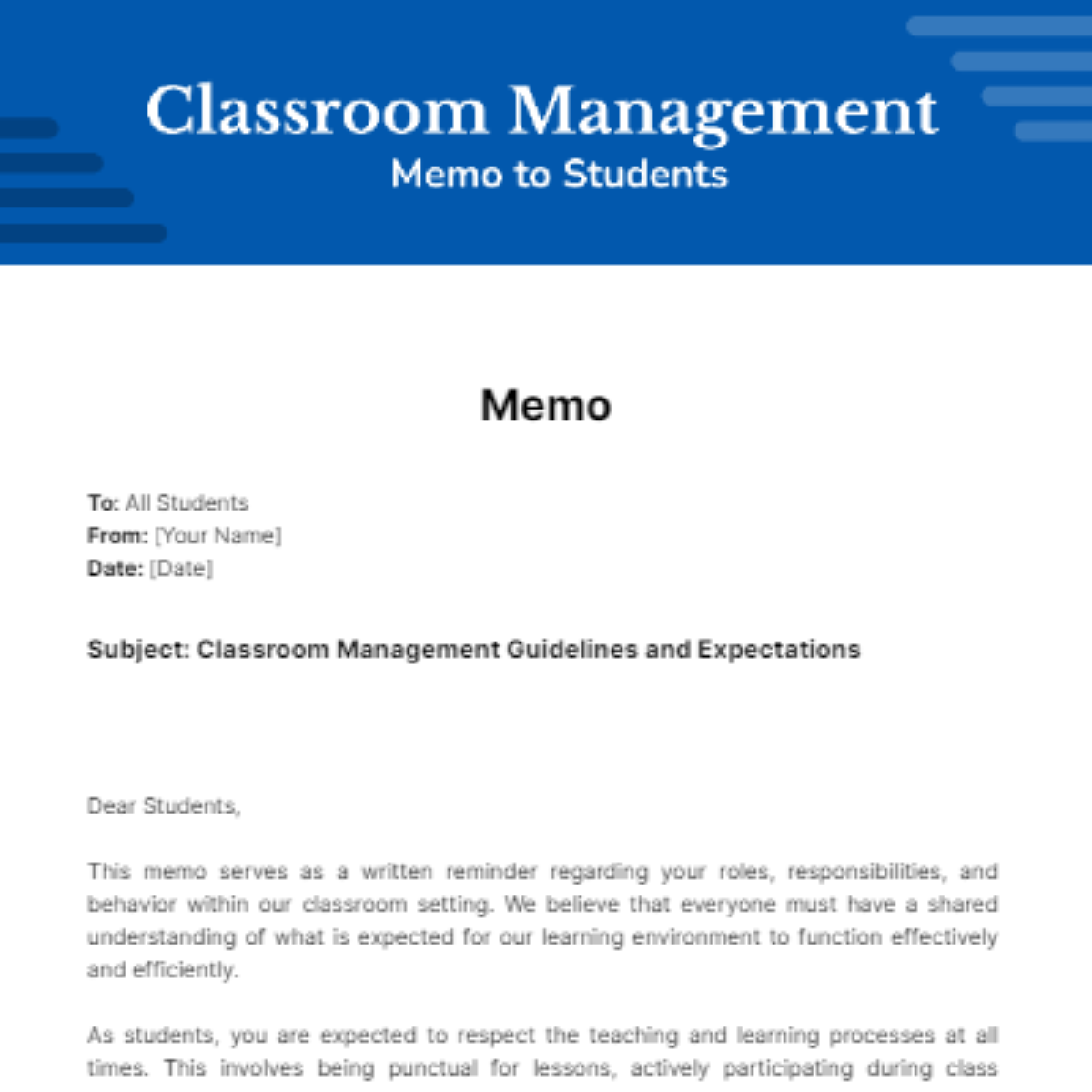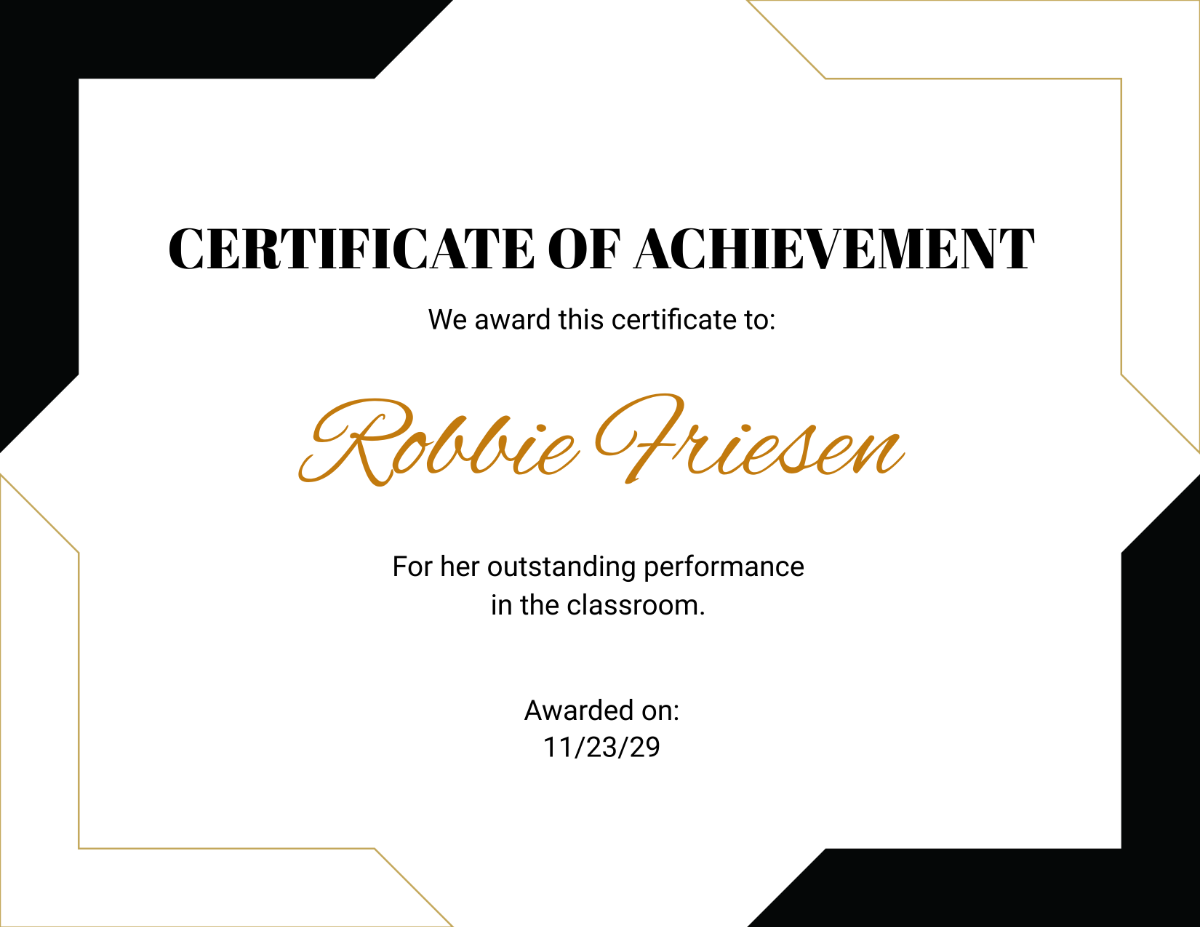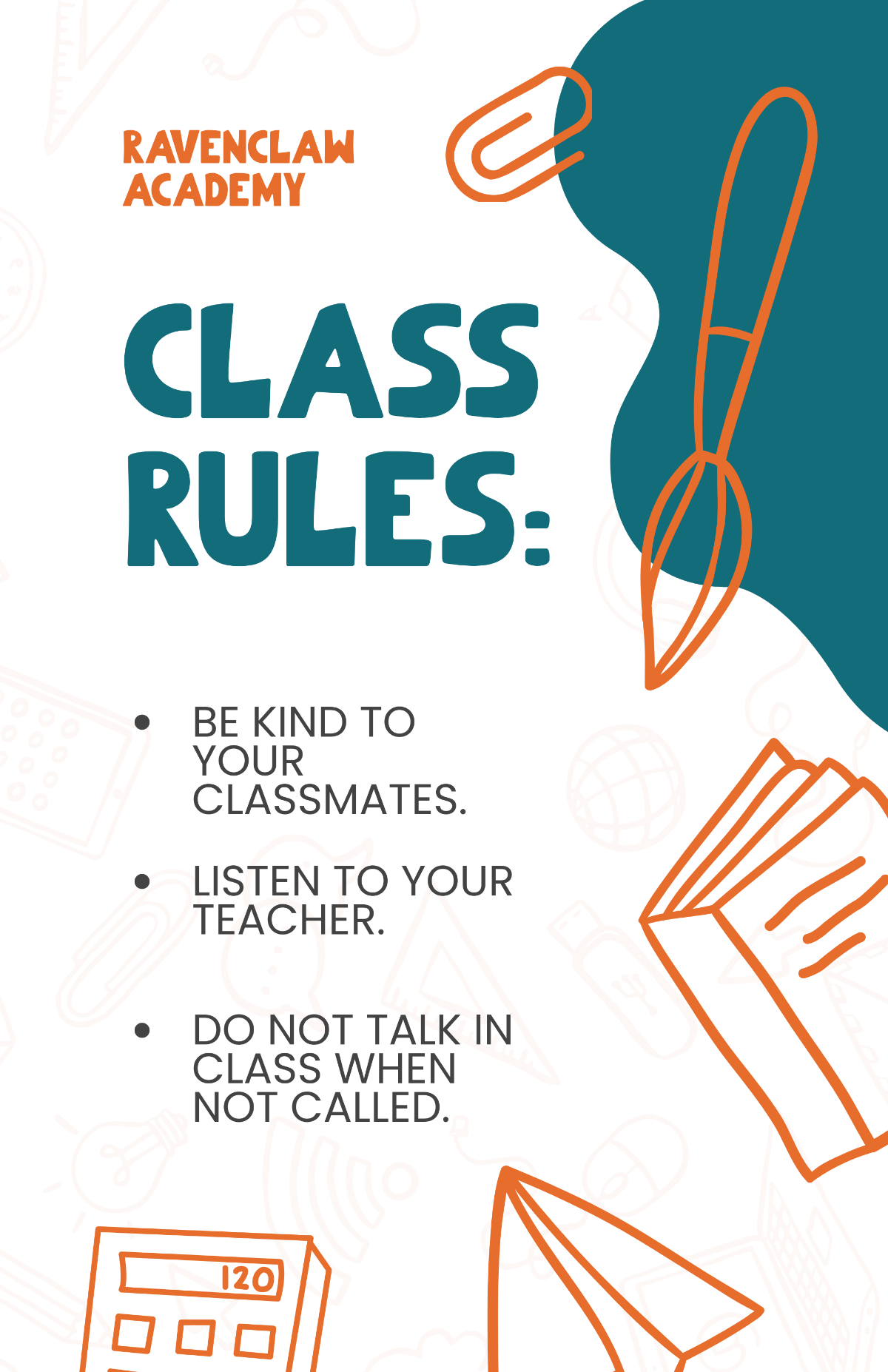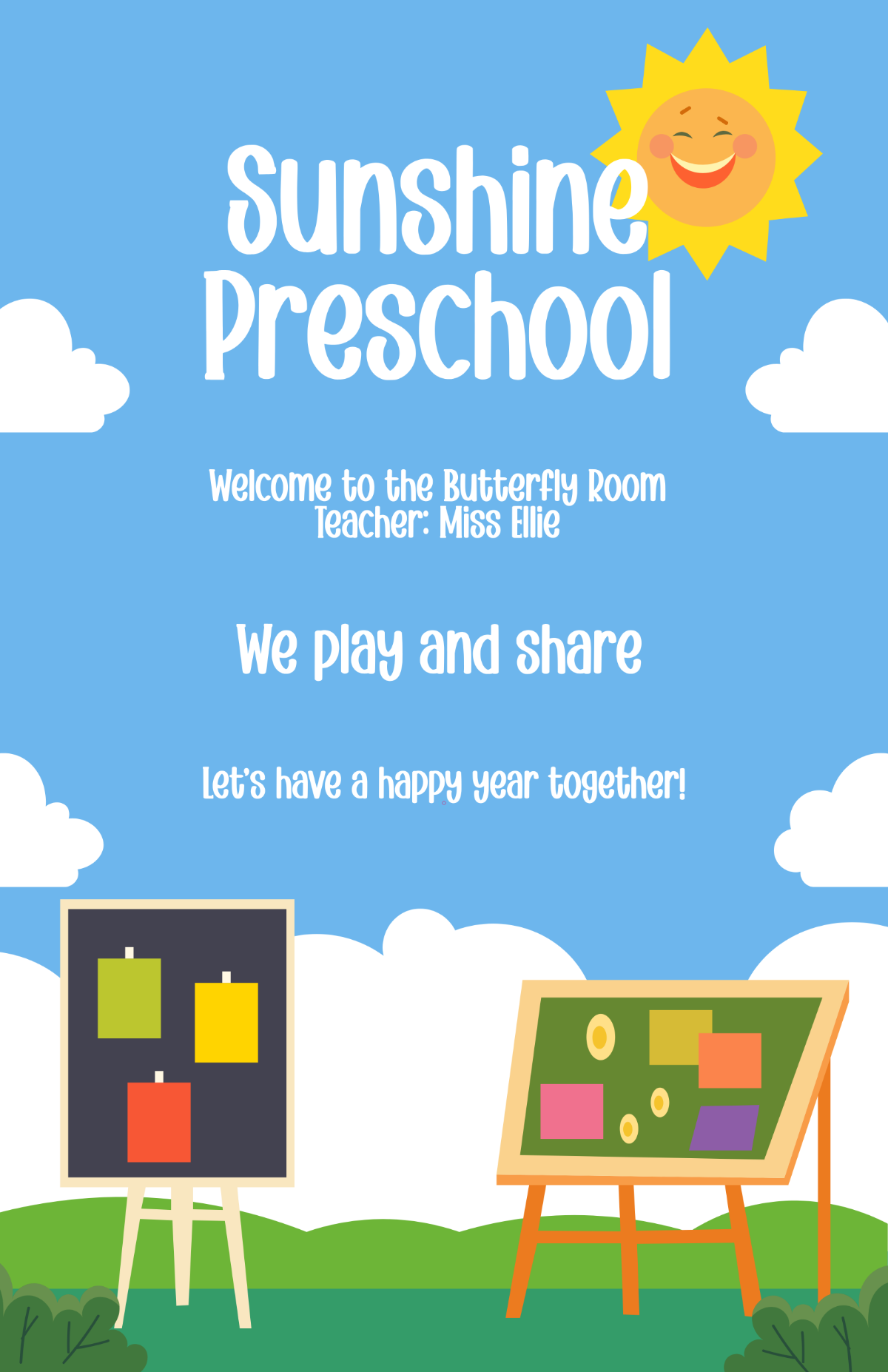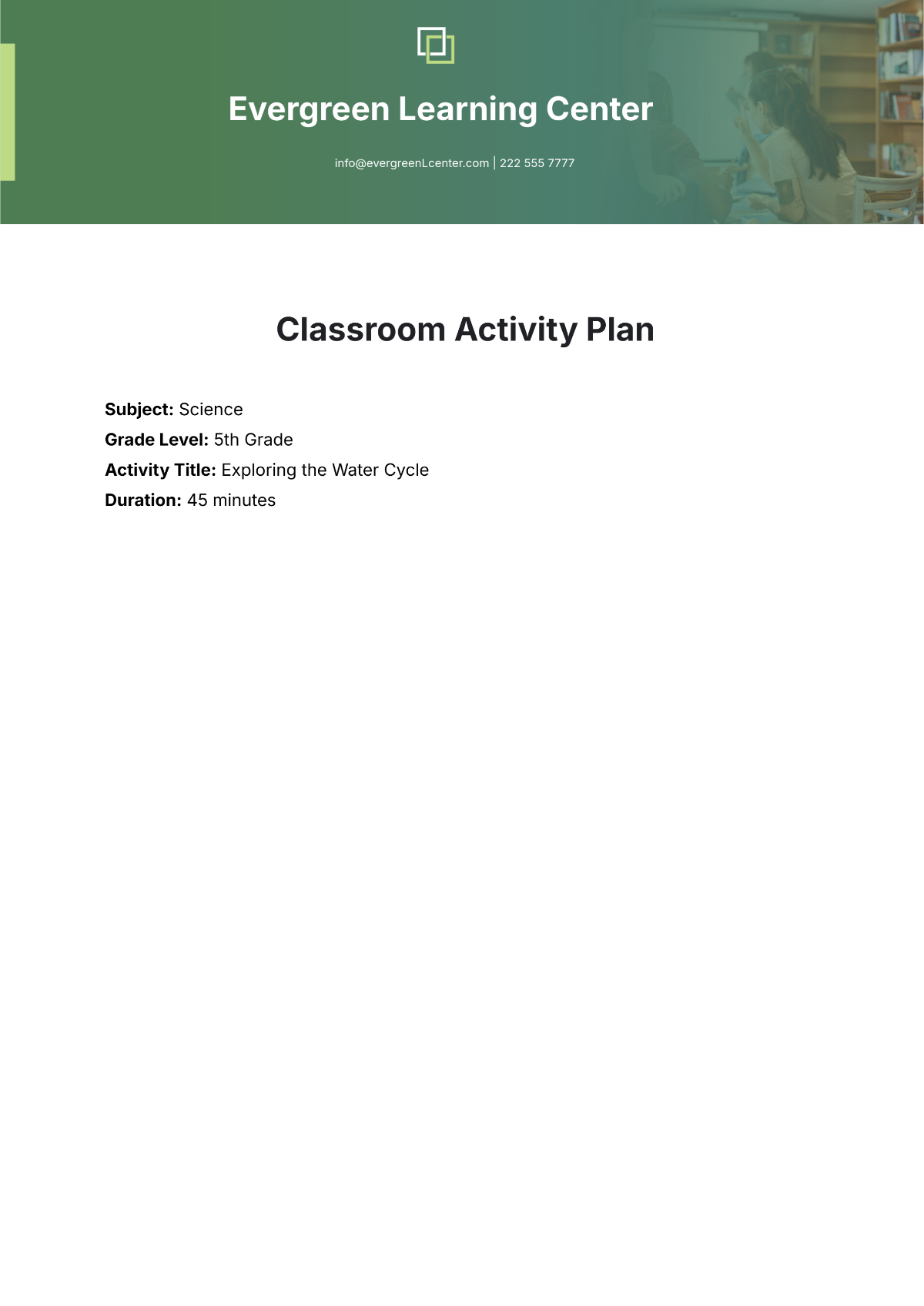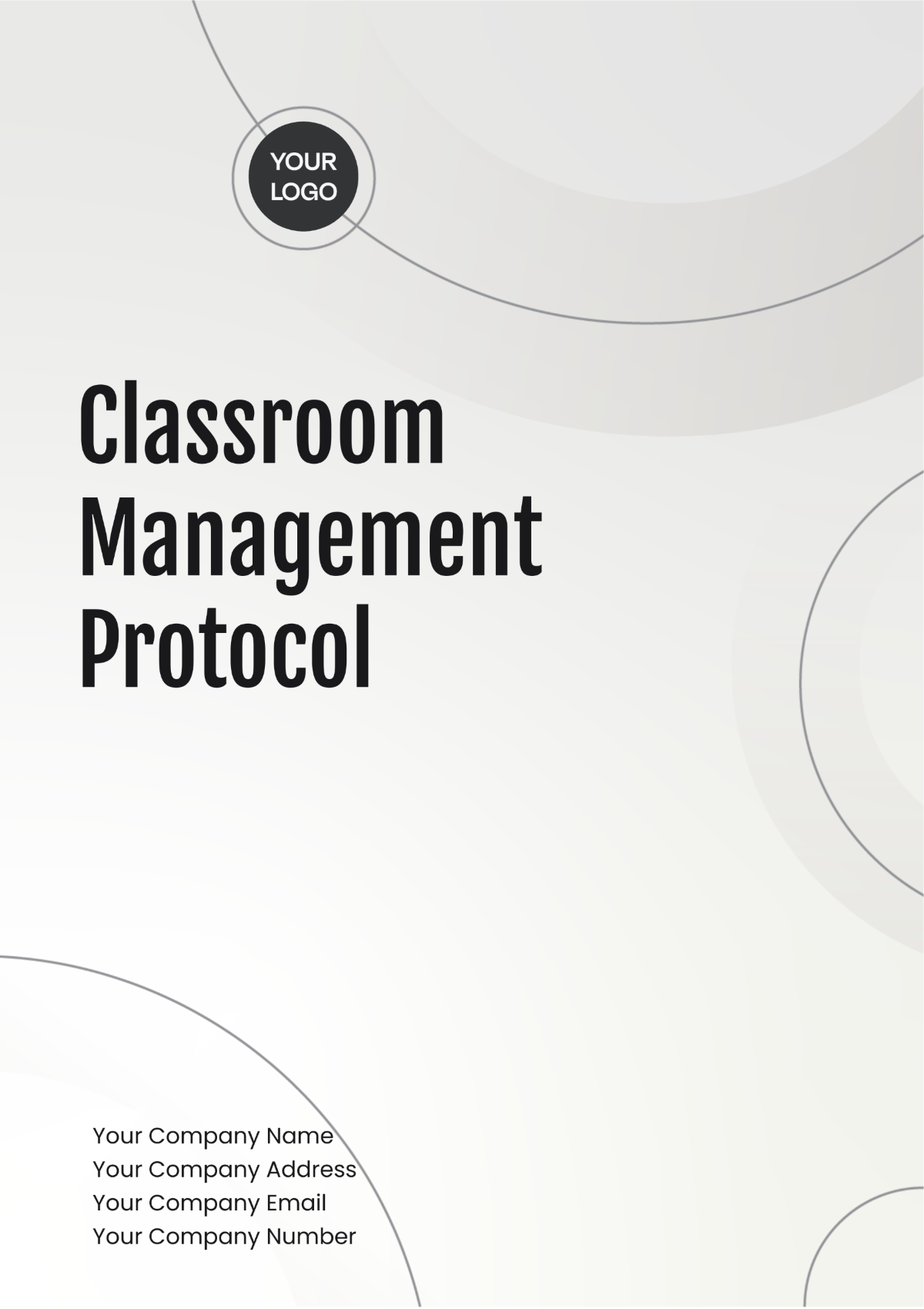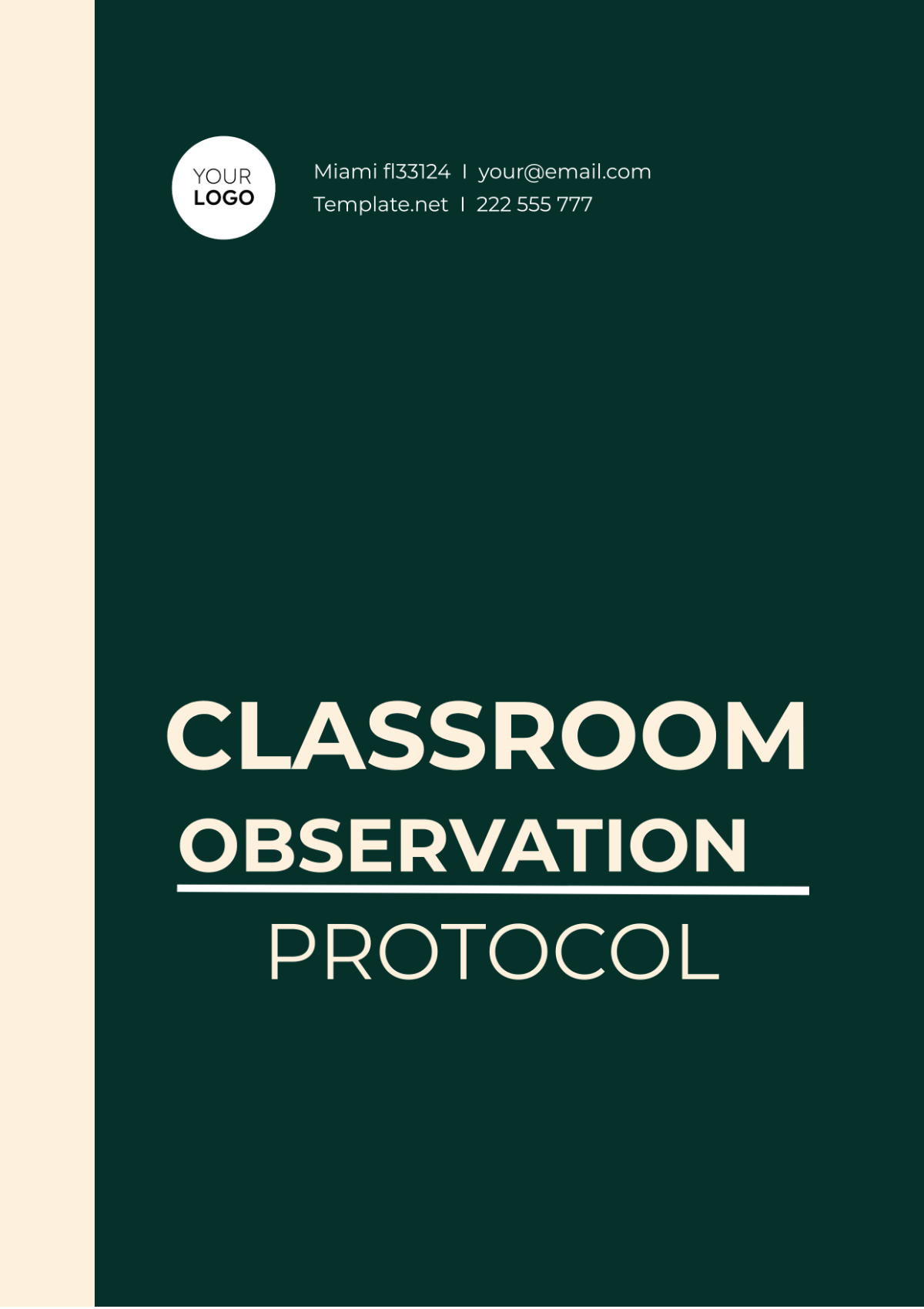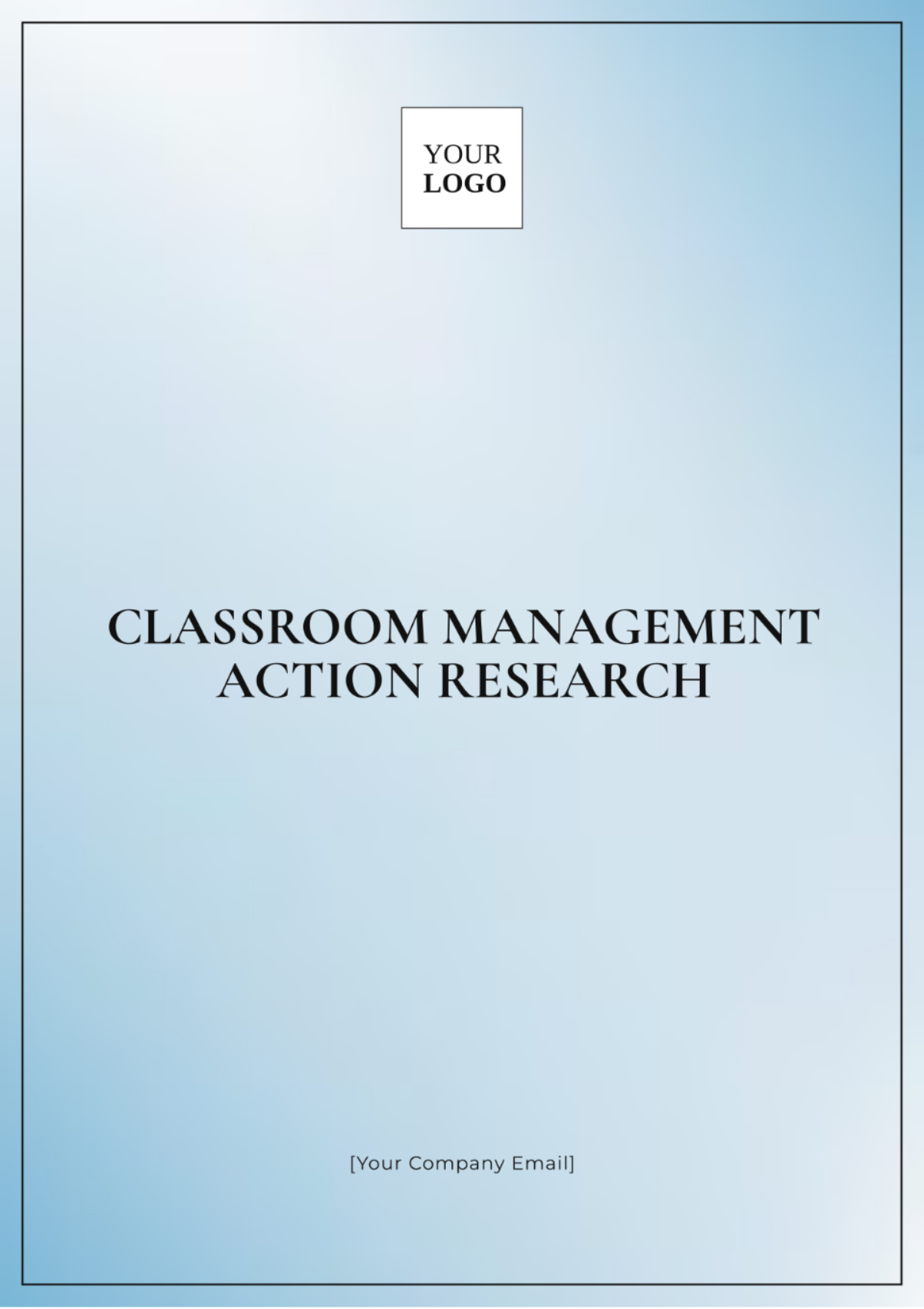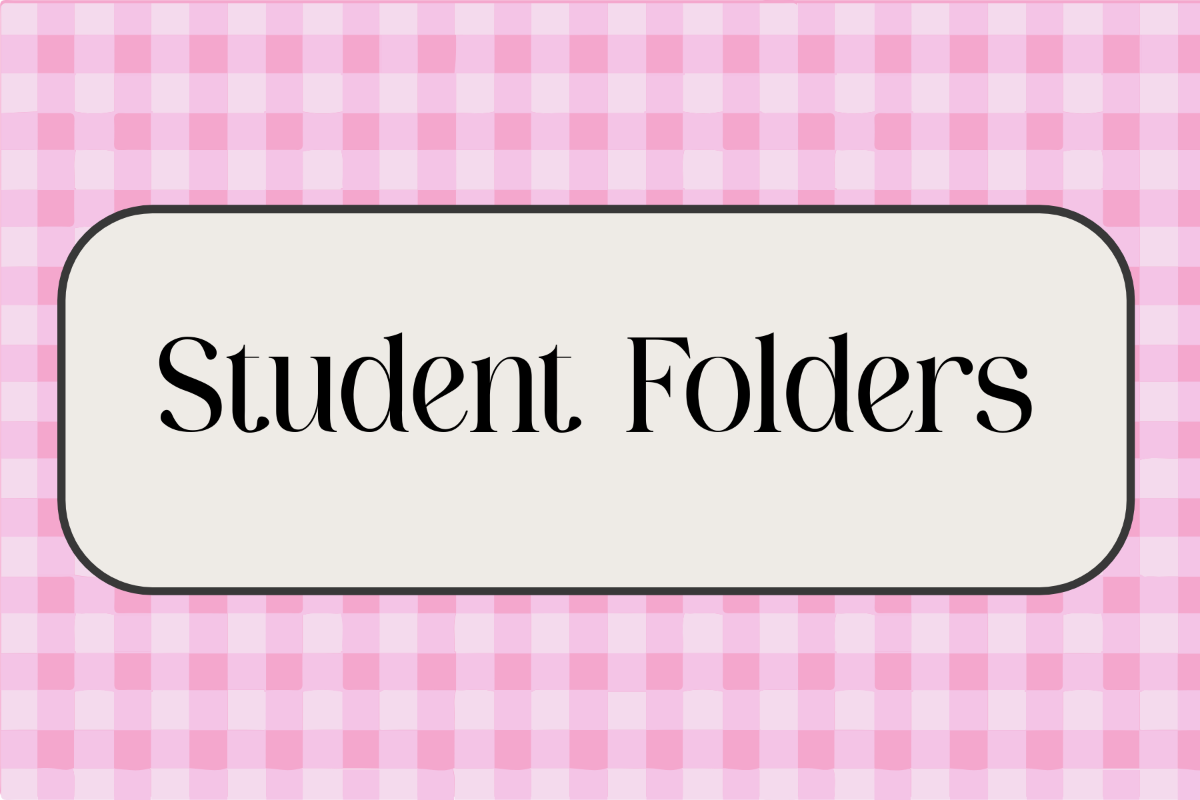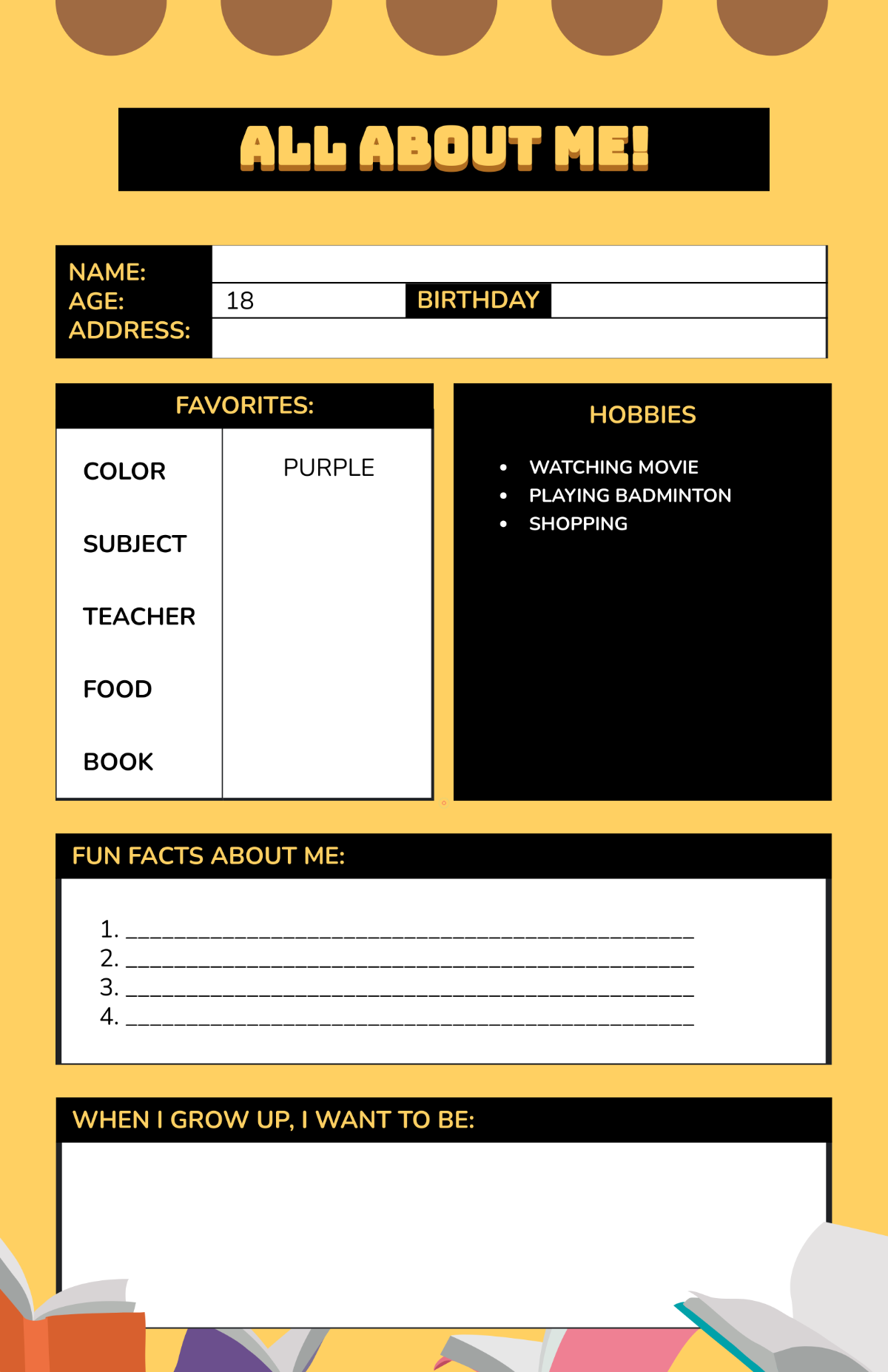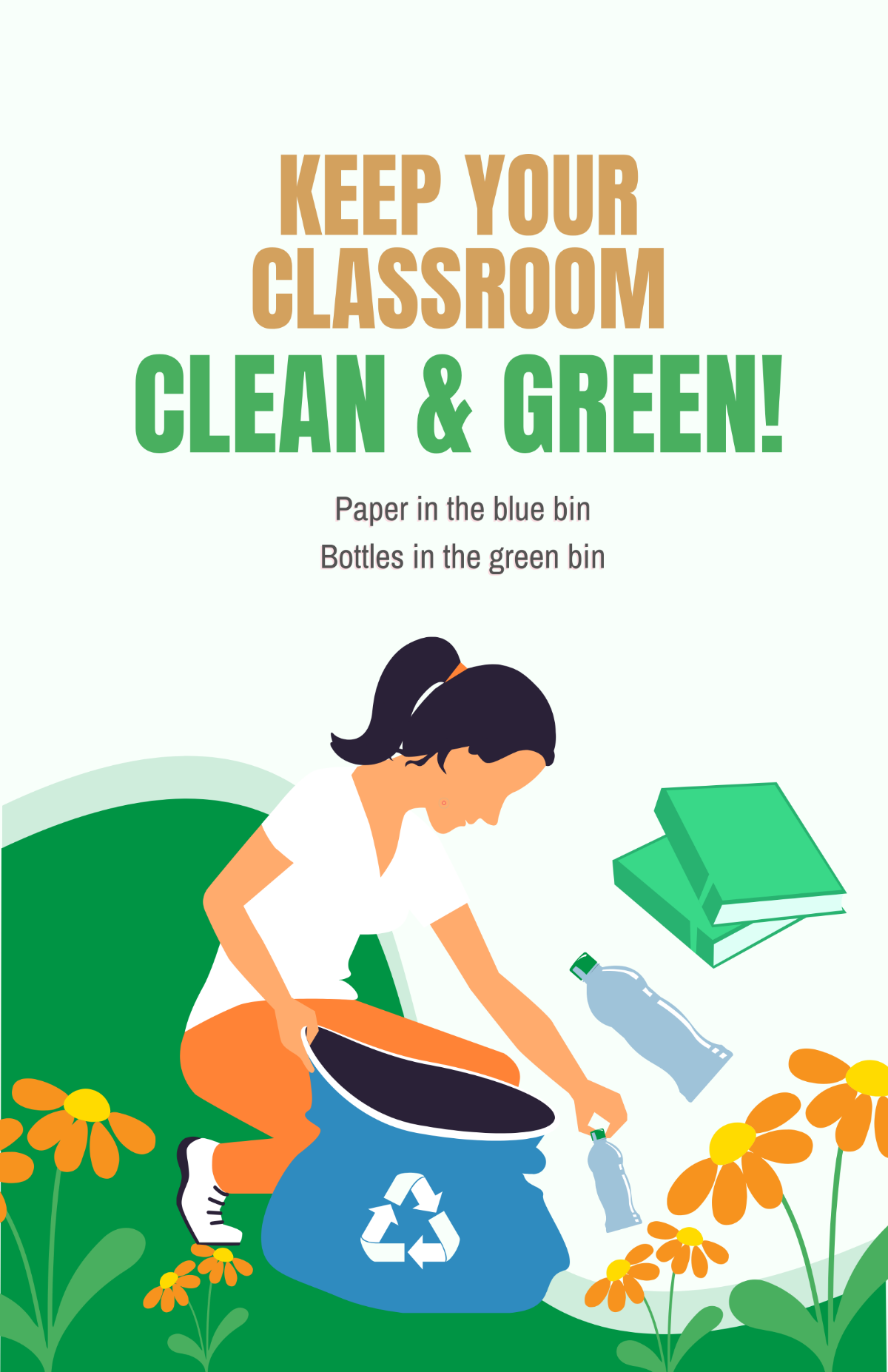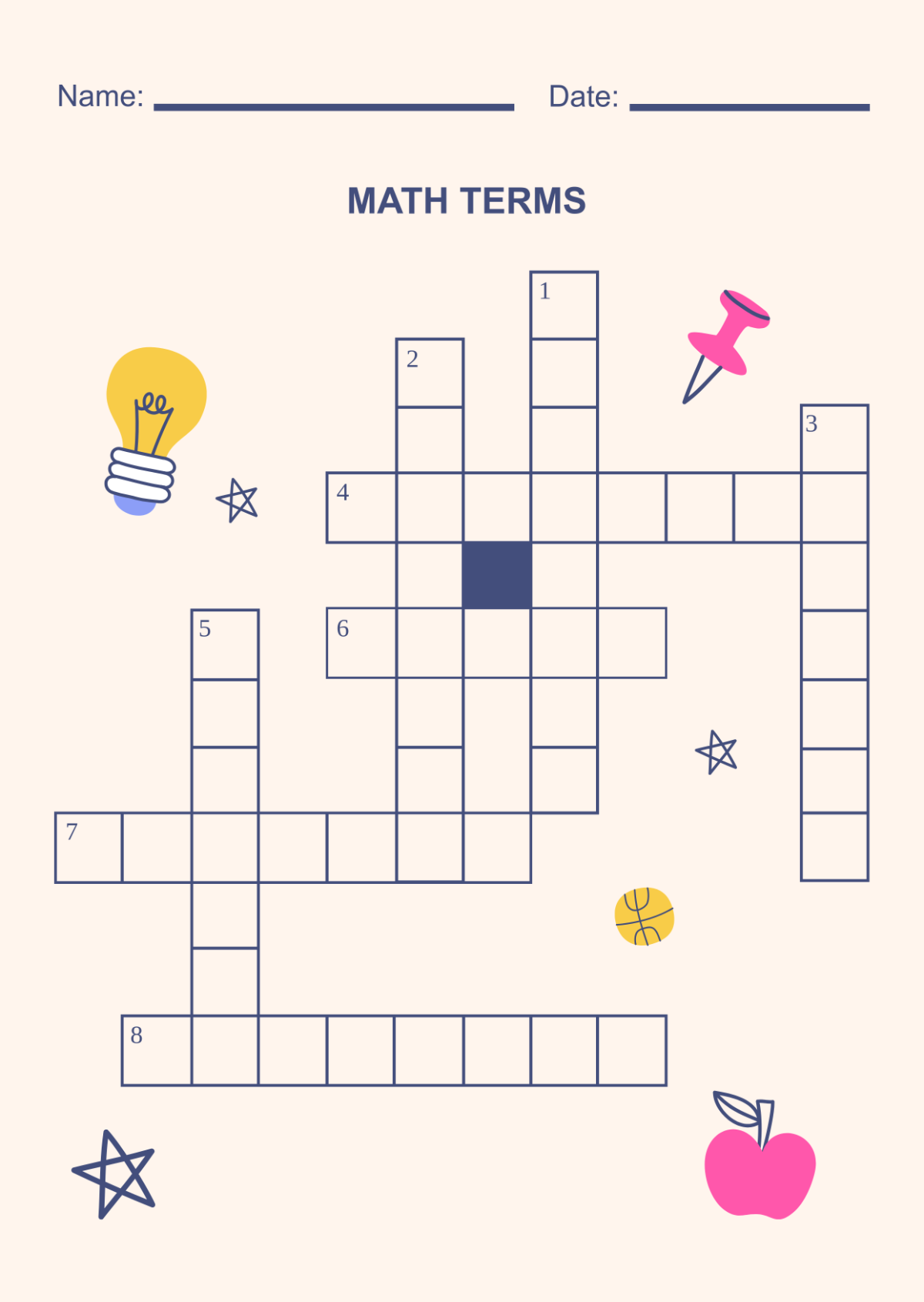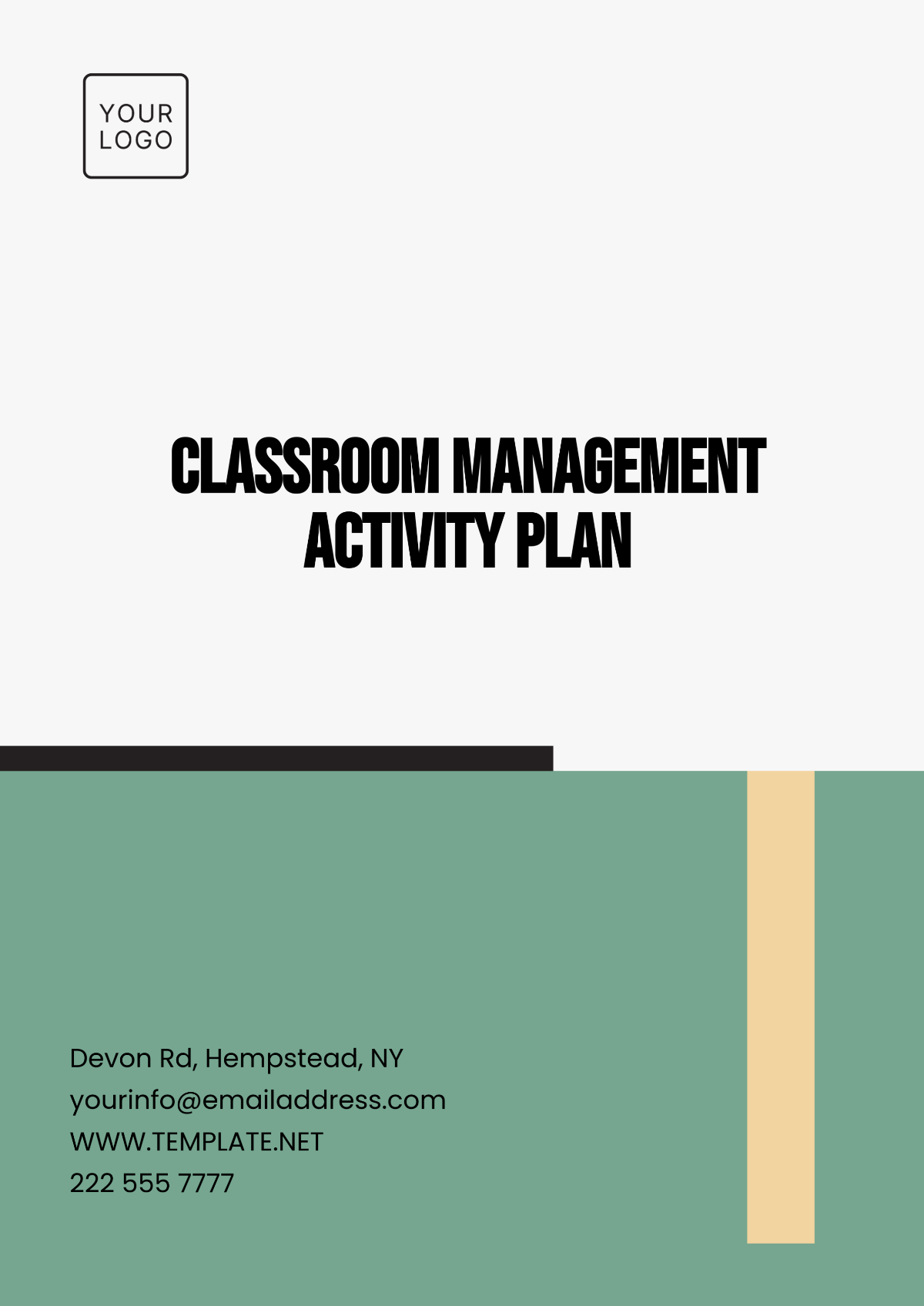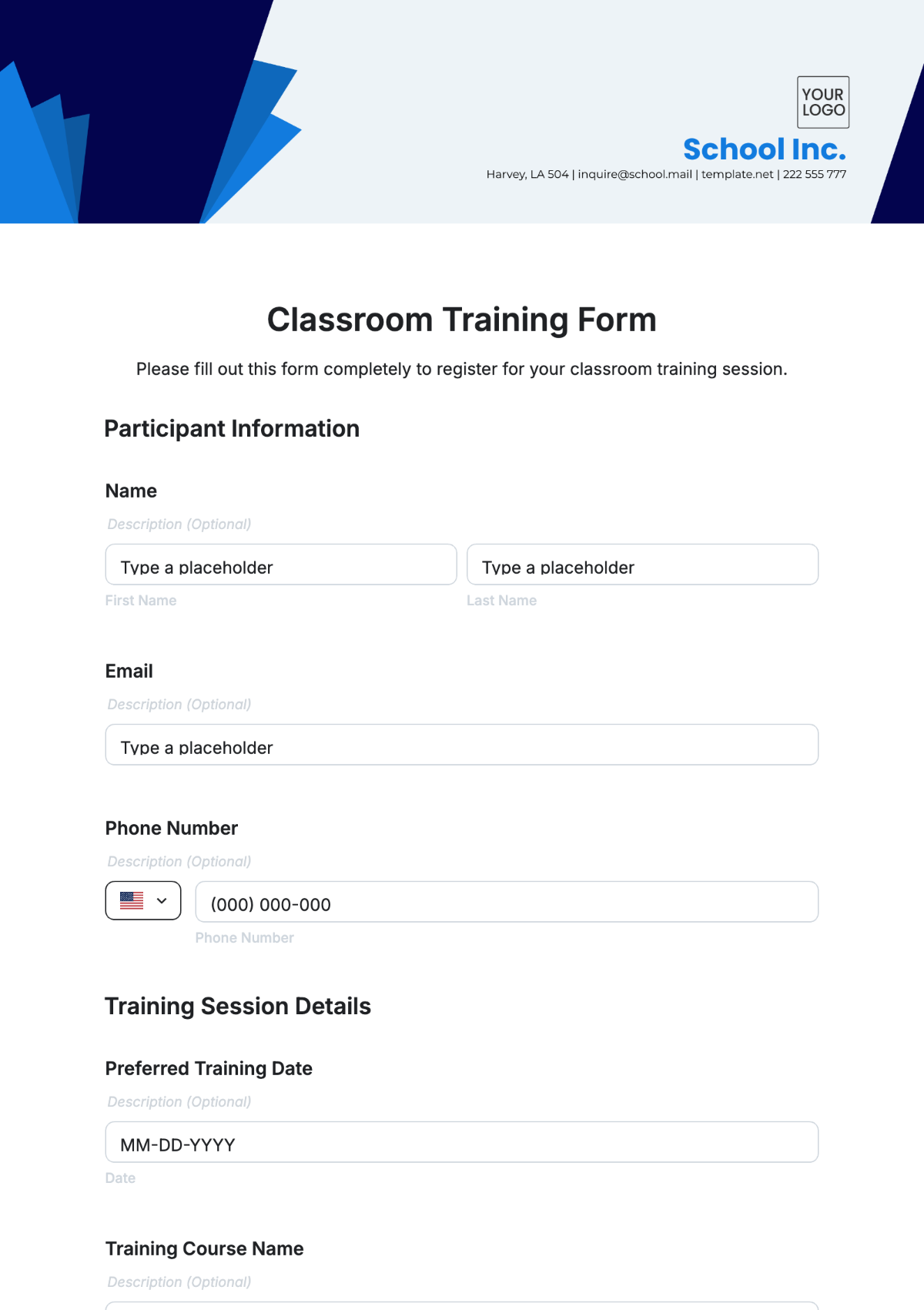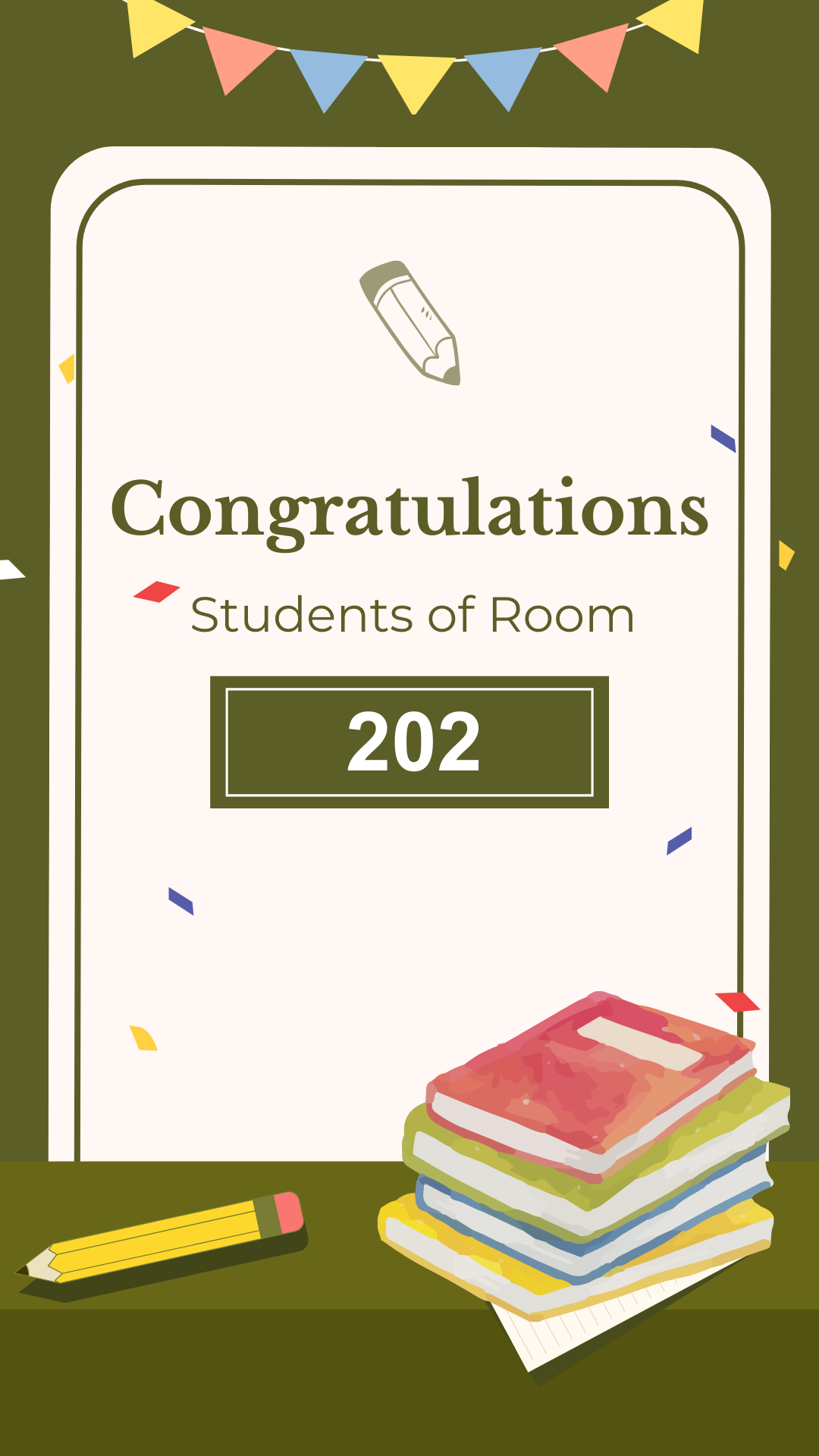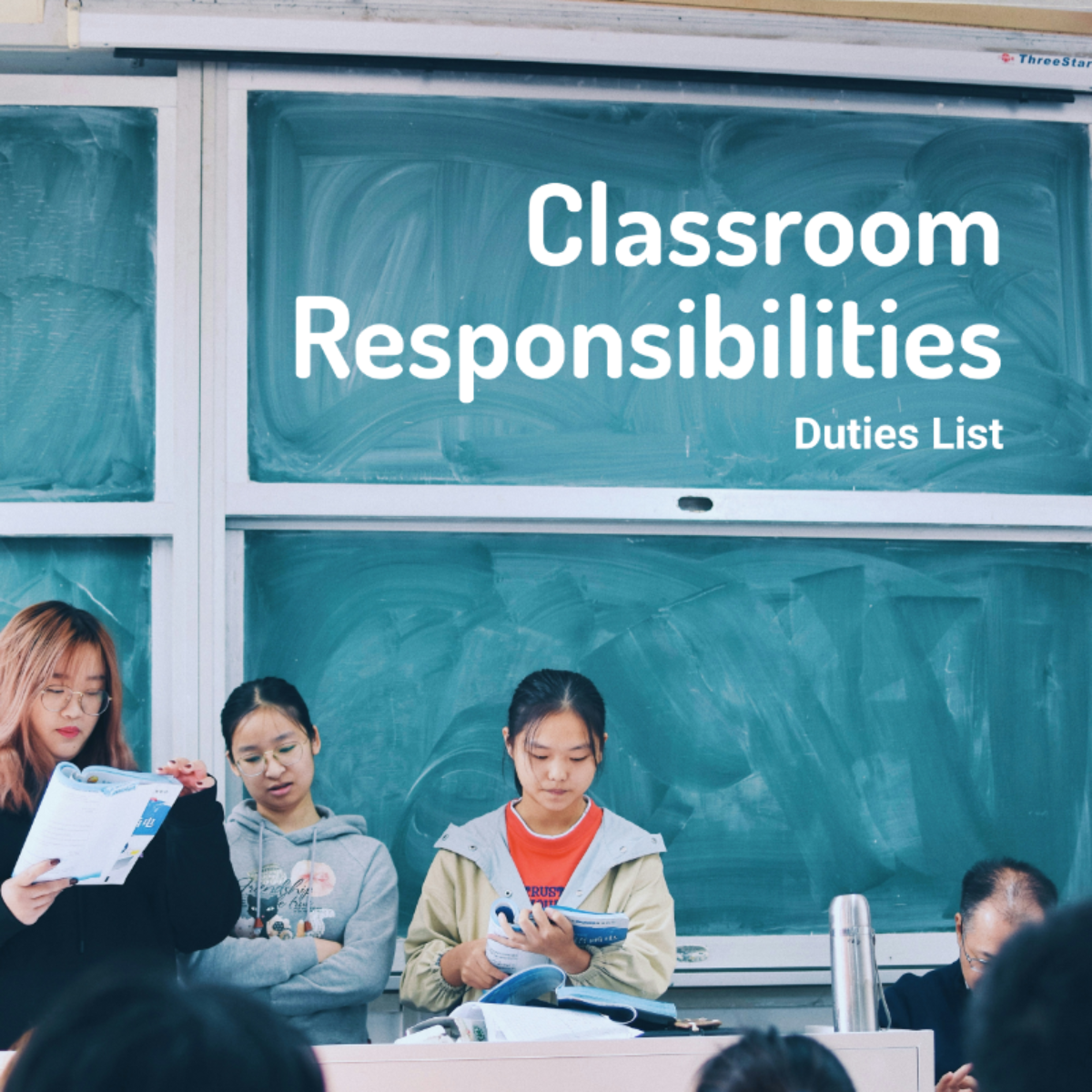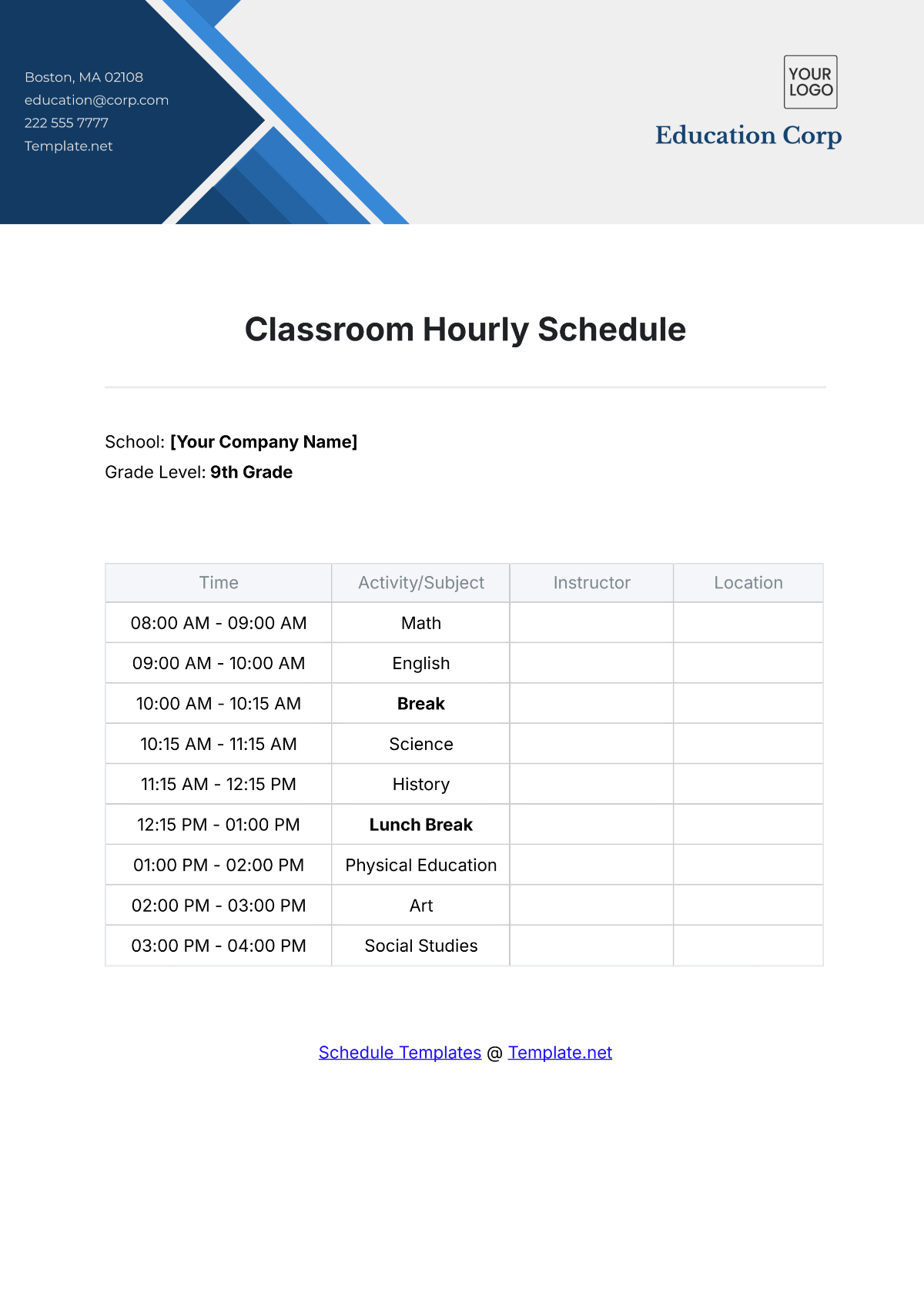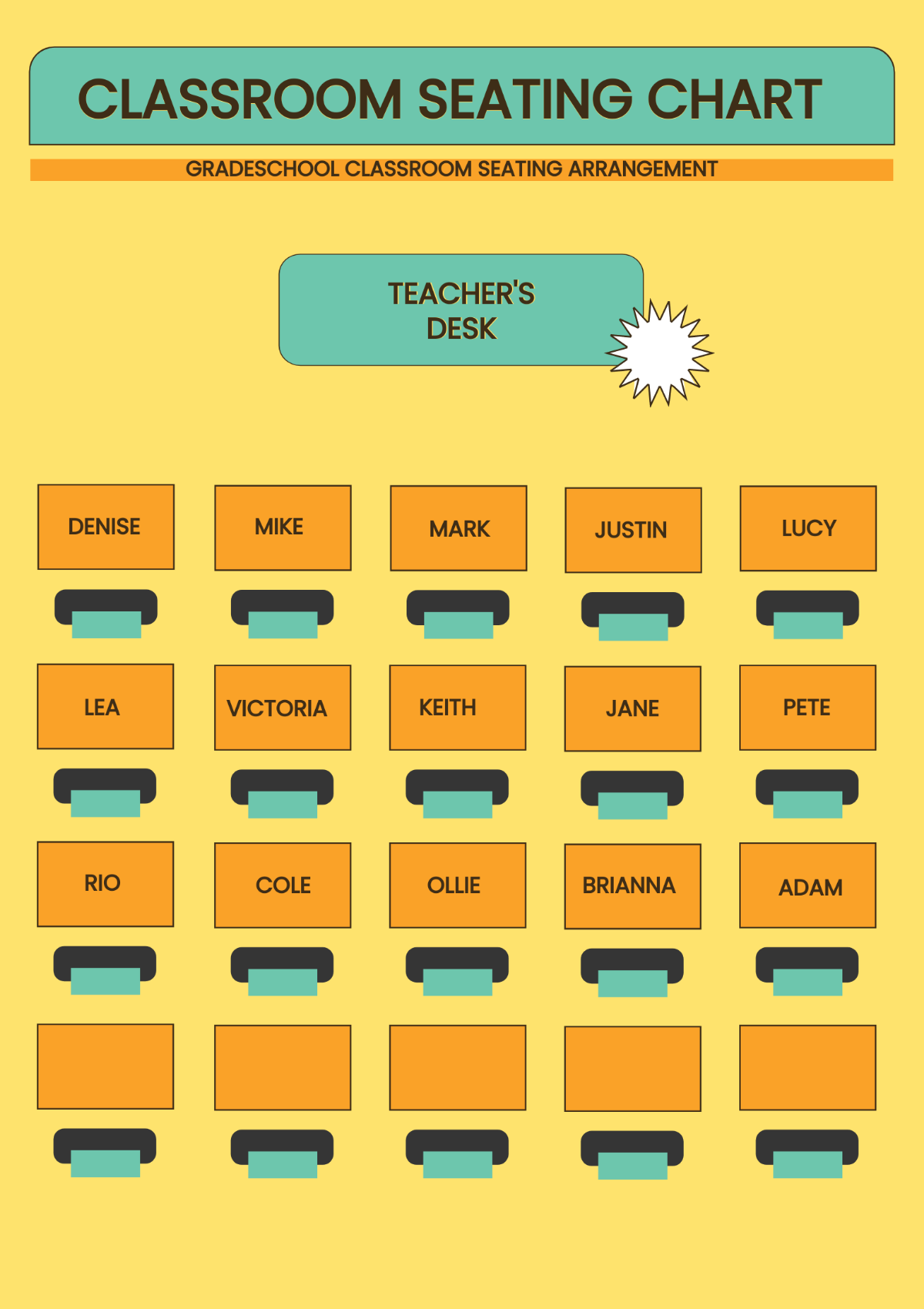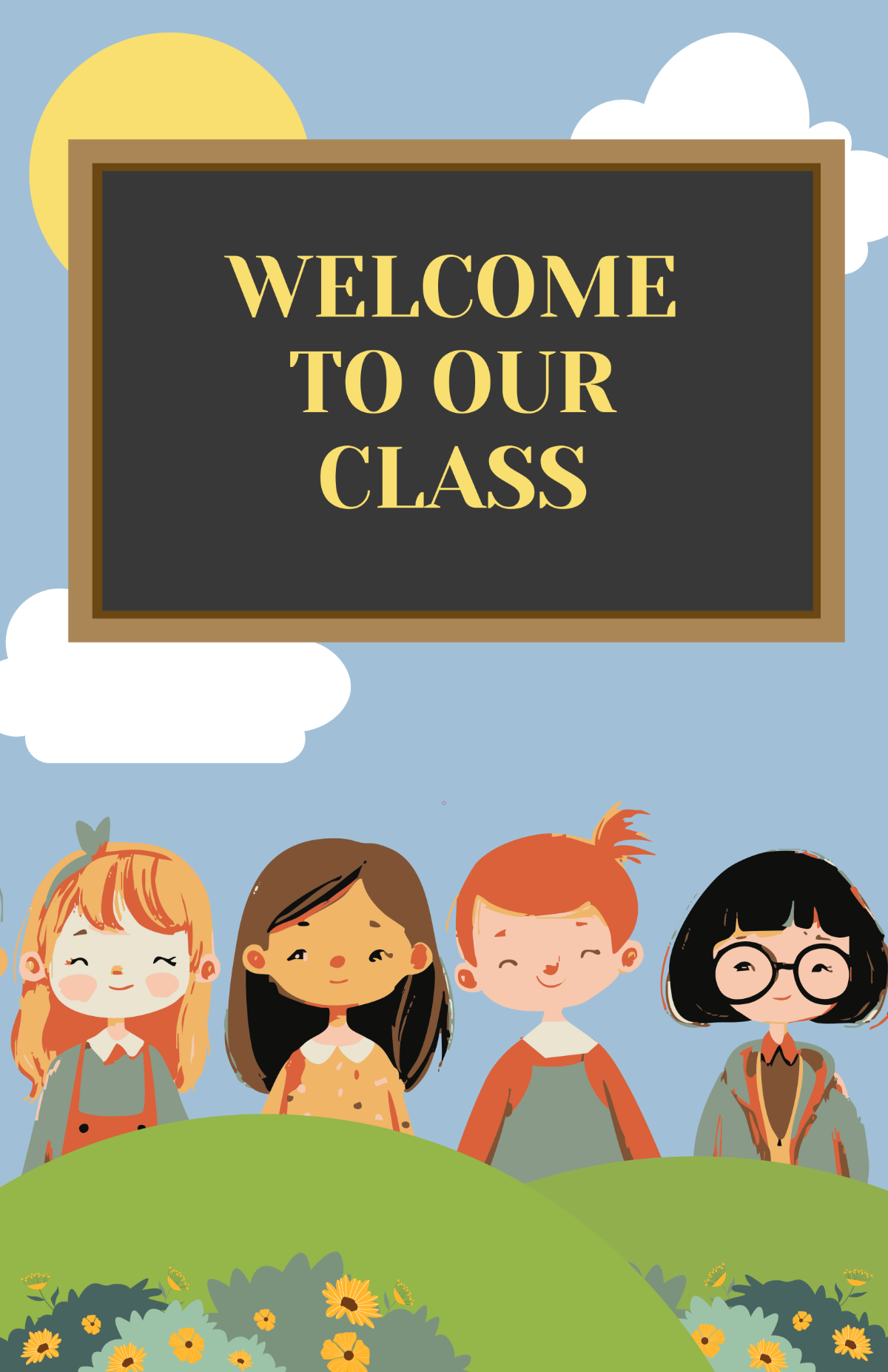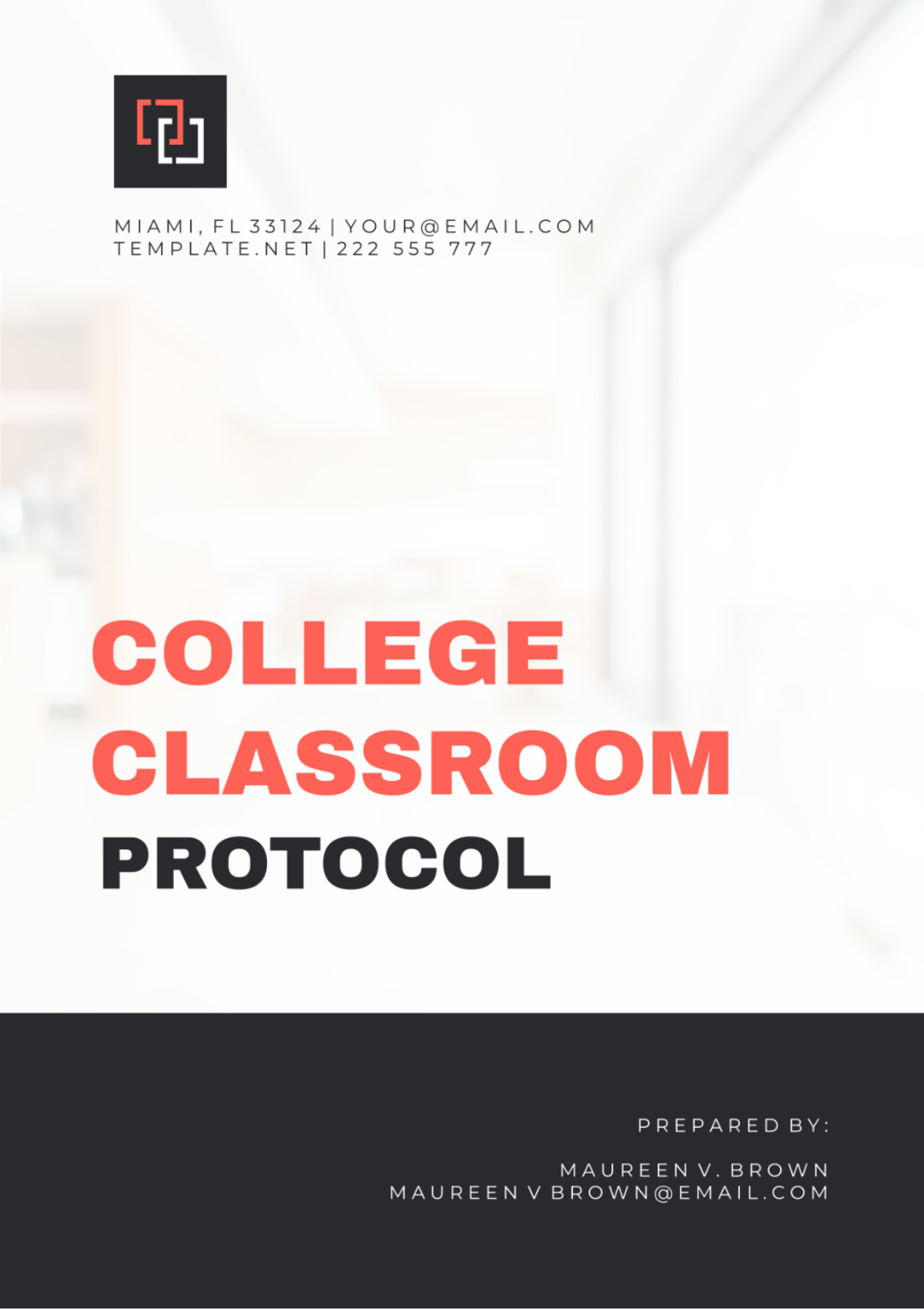Classroom Management Action Research
Prepared By: [YOUR NAME]
Date: [DATE]
I. Introduction
The purpose of this research is to explore classroom management strategies through systematic inquiry. Classroom management remains a perennial challenge for educators, impacting both student behavior and learning outcomes. The objective is to identify issues related to student behavior, learning environment, and teaching practices, implement interventions, and evaluate their effectiveness.
II. Literature Review
Foundational Studies: Jones and Jones (2050) highlighted the importance of proactive strategies in classroom management. Their research shows that setting clear expectations and engaging students early helps prevent misbehavior and creates a positive learning environment.
Behavior Management: Simonsen et al. (2051) focused on positive behavior support systems. They found that structured reward systems effectively reinforce desirable behaviors, improve student motivation, and reduce disruptions.
Environmental Factors: Weinstein (2052) explored how physical classroom environments impact behavior and learning. Well-organized and appealing layouts enhance student focus and academic success by reducing distractions and supporting varied learning needs.
Teacher Practices: Wong and Wong (2053) stressed the value of structured routines. Their study demonstrates that consistent classroom management practices foster stability, improve student performance, and minimize behavioral issues.
III. Methodology
A. Research Design
Quasi-Experimental Design: This research uses a quasi-experimental approach featuring intervention and control groups; the intervention group implemented new classroom management techniques, while the control group continued with conventional methods, enabling a comparative analysis of the results.
B. Participants
Students: 60 middle school students, split evenly between intervention and control groups. Random assignment ensured balanced demographics and initial behavior levels.
Teachers: 4 teachers, with two implementing the new strategies and two maintaining standard practices, providing varied perspectives on the intervention.
C. Data Collection Methods
Surveys: Administered to students at the start and end of the study to capture changes in perceptions of classroom management.
Observations: Weekly observations recorded disruptive behaviors, engagement levels, and adherence to routines using a standardized checklist.
Interviews: Conducted with teachers at the mid-point and end of the study to gather feedback on the effectiveness and challenges of the intervention.
Academic Performance Records: Assessed test results, homework, and overall performance to gauge the intervention's impact on student learning.
IV. Intervention
The following classroom management strategies were implemented over 12 weeks:
A. Positive Behavior Interventions
Reward Systems: Students earned points for positive behaviors like punctuality and participation. Points could be exchanged for rewards such as extra recess or classroom privileges, aimed at encouraging consistent positive behavior.
B. Structured Routines
Daily Procedures: Clear daily routines were established, including set schedules for transitions and activities. Visual aids and posted schedules helped students follow these procedures consistently.
C. Environmental Modifications
Seating Arrangements: Seating was organized in clusters to reduce distractions and support collaboration. Adjustments were made based on observations to maintain effective learning conditions.
D. Social-Emotional Learning (SEL)
SEL Programs: Weekly SEL lessons focused on self-regulation and emotional skills through role-playing, mindfulness, and discussions to enhance self-control and empathy.
V. Results
The data gathered from the multiple interventions that were conducted indicated that there were considerable and noteworthy improvements.
Student Behavior: The intervention resulted in a 70% decrease in disruptive behaviors, dropping from 80 incidents per week to 24. This improvement was due to the structured routines and reward systems that encouraged positive behavior.
Learning Environment: Engagement scores improved from 3.5/5 to 4.6/5, reflecting greater participation, focus, and collaboration. These gains were driven by clear routines and SEL activities that promoted teamwork and self-regulation.
Teacher Feedback: Teachers reported high satisfaction with the strategies, noting a more orderly classroom, fewer disruptions, and easier implementation of routines and rewards.
Academic Performance: Test scores increased by 15%, from 65% to 80%, due to reduced distractions, better student engagement, and the positive impact of SEL programs on focus and discipline.
Metrics | Before Intervention | After Intervention |
|---|---|---|
Disruptive Behaviors | 80 incidents/week | 24 incidents/week |
Engagement Scores | 3.5/5 | 4.6/5 |
Test Scores (Avg %) | 65% | 80% |
VI. Discussion
The study's results demonstrate that combining behavioral, environmental, and instructional interventions significantly enhances classroom management, highlighting the need for integrative strategies that consider multiple aspects of the educational environment and diverse teaching practices.
VII. Conclusion
This research shows that adapting classroom management strategies to students' individual needs significantly improves behavior and academic achievements. Tailored approaches can create more effective learning environments, leading to better student outcomes. Future studies should explore the long-term impact and broad applicability of these strategies in different educational settings.
VIII. References
Jones, V., & Jones, L. (2050). Comprehensive Classroom Management. Pearson.
Simonsen, B., Fairbanks, S., Briesch, A., Myers, D., & Sugai, G. (2051). Evidence-Based Practices in Classroom Management. Education and Treatment of Children, 31(3), 351-380.
Weinstein, C. (2052). Critically Responsive Classroom Management: Awareness to Intervention. Educational Leadership, 56(1), 26-30.
Wong, H., & Wong, R. (2053). The First Days of School: How to Be an Effective Teacher. Harry K. Wong Publications.

